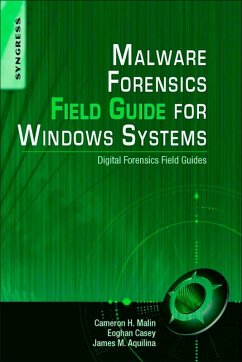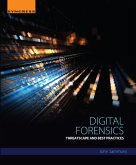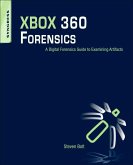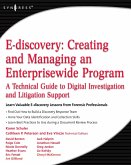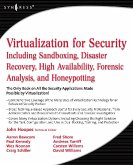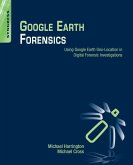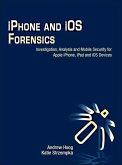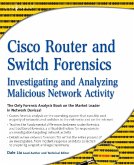This book collects data from all methods of electronic data storage and transfer devices, including computers, laptops, PDAs and the images, spreadsheets and other types of files stored on these devices. It is specific for Windows-based systems, the largest running OS in the world. The authors are world-renowned leaders in investigating and analyzing malicious code. Chapters cover malware incident response - volatile data collection and examination on a live Windows system; analysis of physical and process memory dumps for malware artifacts; post-mortem forensics - discovering and extracting malware and associated artifacts from Windows systems; legal considerations; file identification and profiling initial analysis of a suspect file on a Windows system; and analysis of a suspect program.
This field guide is intended for computer forensic investigators, analysts, and specialists.
- A condensed hand-held guide complete with on-the-job tasks and checklists
- Specific for Windows-based systems, the largest running OS in the world
- Authors are world-renowned leaders in investigating and analyzing malicious code
Dieser Download kann aus rechtlichen Gründen nur mit Rechnungsadresse in A, B, BG, CY, CZ, D, DK, EW, E, FIN, F, GR, HR, H, IRL, I, LT, L, LR, M, NL, PL, P, R, S, SLO, SK ausgeliefert werden.
Hinweis: Dieser Artikel kann nur an eine deutsche Lieferadresse ausgeliefert werden.

